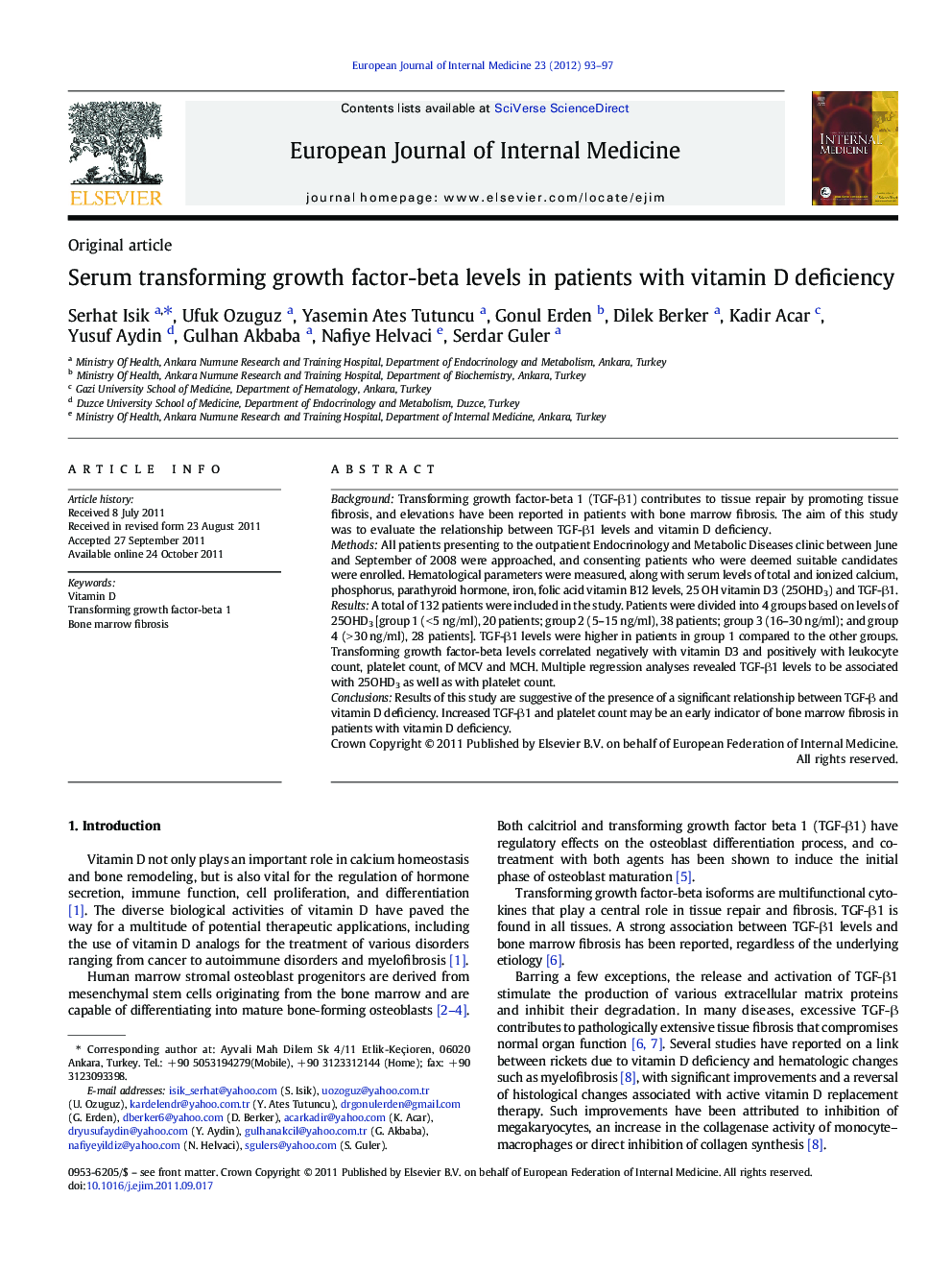| Article ID | Journal | Published Year | Pages | File Type |
|---|---|---|---|---|
| 3467797 | European Journal of Internal Medicine | 2012 | 5 Pages |
BackgroundTransforming growth factor-beta 1 (TGF-β1) contributes to tissue repair by promoting tissue fibrosis, and elevations have been reported in patients with bone marrow fibrosis. The aim of this study was to evaluate the relationship between TGF-β1 levels and vitamin D deficiency.MethodsAll patients presenting to the outpatient Endocrinology and Metabolic Diseases clinic between June and September of 2008 were approached, and consenting patients who were deemed suitable candidates were enrolled. Hematological parameters were measured, along with serum levels of total and ionized calcium, phosphorus, parathyroid hormone, iron, folic acid vitamin B12 levels, 25 OH vitamin D3 (25OHD3) and TGF-β1.ResultsA total of 132 patients were included in the study. Patients were divided into 4 groups based on levels of 25OHD3 [group 1 (< 5 ng/ml), 20 patients; group 2 (5–15 ng/ml), 38 patients; group 3 (16–30 ng/ml); and group 4 (> 30 ng/ml), 28 patients]. TGF-β1 levels were higher in patients in group 1 compared to the other groups. Transforming growth factor-beta levels correlated negatively with vitamin D3 and positively with leukocyte count, platelet count, of MCV and MCH. Multiple regression analyses revealed TGF-β1 levels to be associated with 25OHD3 as well as with platelet count.ConclusionsResults of this study are suggestive of the presence of a significant relationship between TGF-β and vitamin D deficiency. Increased TGF-β1 and platelet count may be an early indicator of bone marrow fibrosis in patients with vitamin D deficiency.
